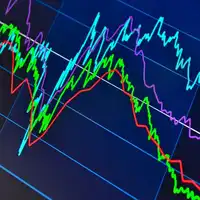
What is Forex Trading?
Forex trading, also known as foreign exchange trading, is the process of buying and selling currencies on the global foreign exchange market. It involves speculating on the price movements of currency pairs with the aim of making a profit. Traders engage in forex trading to take advantage of fluctuations in exchange rates and capitalize on potential trading opportunities.
Why Trade Forex?
Forex trading offers several advantages that attract traders worldwide:
High liquidity: With trillions of dollars traded daily, the forex market is highly liquid, ensuring that traders can enter and exit positions easily.
24-hour market: The forex market operates around the clock, enabling traders from different time zones to participate at their convenience.
Opportunity for profit in both rising and falling markets: Forex trading allows traders to profit from both upward and downward movements in currency prices.
Leverage: Forex brokers offer leverage, which allows traders to control larger positions with a smaller amount of capital, potentially amplifying profits.
Diverse trading options: Traders can choose from a wide range of currency pairs, allowing for flexibility and the ability to trade on various global economic trends.
Key Participants in the Forex Market
The forex market involves several key participants who contribute to its functioning:
Banks: Central banks and commercial banks play a significant role by facilitating currency transactions, providing liquidity, and implementing monetary policies.
Institutional investors: Large financial institutions, such as hedge funds and pension funds, participate in forex trading to manage their portfolios and seek profit opportunities.
Retail traders: Individual traders, including retail investors and speculators, participate in the forex market through online trading platforms provided by brokers.
Forex brokers: These are companies that provide trading platforms and services to retail traders, allowing them to access the forex market and execute trades.
Market makers: Market makers are entities, often large financial institutions, that quote both buy and sell prices for currency pairs, ensuring liquidity in the market.
Interbank market: The interbank market consists of a network of large banks that trade currencies directly with each other, influencing exchange rates.
Understanding Currency Pairs
Currency pairs are the foundation of forex trading. They represent the relative value of one currency against another. Each currency pair consists of a base currency and a quote currency. For example, in the EUR/USD pair, the euro (EUR) is the base currency, and the US dollar (USD) is the quote currency. The exchange rate of a currency pair indicates how much of the quote currency is needed to buy one unit of the base currency.
Basic Terminology in Forex Trading
Here are some essential terms to understand in forex trading:
Pips: A pip is the smallest unit of measurement in forex, representing the fourth decimal place in most currency pairs.
Spread: The spread refers to the difference between the buying and selling price of a currency pair, representing the cost of trading.
Lot: A lot is a standardized trading size. A standard lot represents 100,000 units of the base currency, while mini and micro lots represent 10,000 and 1,000 units, respectively.
Long and short positions: Going long means buying a currency pair with the expectation that its value will rise. Going short means selling a currency pair with the anticipation that its value will decrease.
Stop-loss order: A stop-loss order is a predetermined price level set by a trader to limit potential losses by automatically closing a trade if the market moves against their position.
Take-profit order: A take-profit order is a predetermined price level at which a trader wishes to close a trade to secure potential profits.
Margin: Margin is the amount of money required to open and maintain a leveraged position. It is a portion of the total trade value provided by the trader, while the broker covers the remaining value.
Margin call: A margin call occurs when a trader’s account balance falls below the required margin level, prompting the broker to request additional funds or close positions to restore the margin level.




